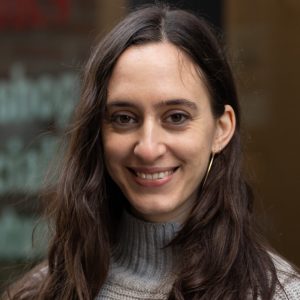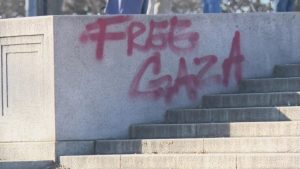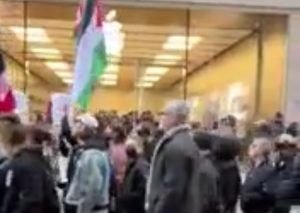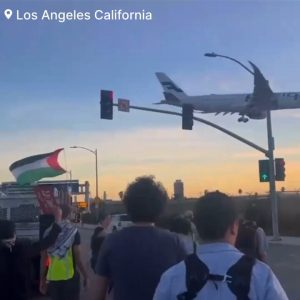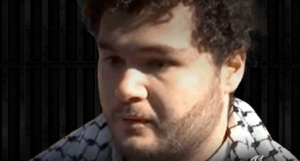Shops were shuttered and streets empty Thursday as Nigeria’s largest city Lagos was locked down under curfew after unrest flared following the shooting of protesters on Tuesday, AFP reported.
According to Amnesty International, at least 12 people were killed by the Nigerian army and police in a brutal crackdown on protesters in Lagos, on Tuesday.
The brutal crackdown, pictures and videos of which were widely shared on social media, unleashed a wave of anger at the authorities.
Buildings including police stations and the National Port Authority were torched and clashes erupted in several locations on Wednesday.
Smoke could still be seen hanging over the sprawling city of 20 million people on Thursday while schools and shops were shut under a round-the-clock curfew ordered by the authorities.
How did the government react?
Although President Muhammadu Buhari hasn’t responded to the Tuesday’s crackdown, his deputy Yemi Osinbajo said his “heart goes out” to the victims of the shooting as well as policemen and others who have lost their lives, AFP reported.
“The pain of these terrible events is palpable in our towns and cities, and some losses are irreplaceable, but we can and will get justice for all of them,” a statement by Osinbajo read.
Meanwhile, the Nigerian Army dubbed as “fake news” reports that soldiers opened fire on demonstrators.
Police Minister Muhammad Maigari Dingyadi told the BBC that troops were not ordered to open fire on protesters.
“I cannot say who is involved in the shooting… definitely not the police. Soldiers have already spoken about this, they are denying their involvement,” he said.
Why are Nigerians protesting?
Protested first broke out in the country on October 8over brutality by the police’s loathed Special Anti-Robbery Squad (SARS).
It soon spiralled into broader demands for police reforms.
At least 56 people have died across the country since the demonstrations began, with about 38 killed nationwide on Tuesday alone, according to Amnesty.
Meanwhile, the African Union on Thursday strongly condemned the violence and called on all parties to “privilege dialogue”.

